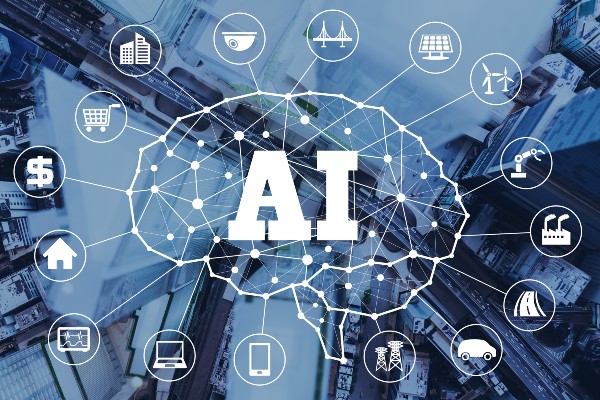Introduction:
Artificial Intelligence (AI) technology has emerged as one of the most transformative innovations of the modern era. With its ability to mimic human intelligence and learn from data, AI has made substantial strides in various fields, revolutionizing the way we live, work, and interact. From virtual assistants and self-driving cars to advanced medical diagnostics and personalized marketing, AI's applications span across diverse industries, promising unprecedented advancements and efficiencies. In this article, we delve into the vast potential of AI technology, exploring its current impact and its exciting future possibilities.
Understanding Artificial Intelligence: At its core, AI refers to computer systems designed to perform tasks that typically require human intelligence, such as problem-solving, learning, and decision-making. Machine Learning (ML) and Deep Learning (DL) are two prominent subsets of AI, enabling systems to learn from data and improve their performance without explicit programming. By harnessing vast amounts of data, AI algorithms can identify patterns, make predictions, and continuously refine their capabilities.
AI in Everyday Life: AI has become deeply ingrained in our daily lives, often without us even realizing it. Virtual assistants like Siri, Alexa, and Google Assistant use natural language processing and machine learning to understand and respond to our voice commands. AI-powered recommendation systems on streaming platforms and e-commerce websites suggest content and products tailored to our preferences, enhancing user experiences. Moreover, AI has revolutionized the transportation sector through self-driving cars and autonomous drones, promising safer and more efficient travel.
AI in Healthcare: In the healthcare industry, AI is rapidly transforming diagnosis, treatment, and patient care. Machine learning algorithms analyze medical images, such as X-rays and MRI scans, to detect anomalies and assist radiologists in making accurate diagnoses. AI-driven predictive analytics help identify high-risk patients, enabling healthcare providers to intervene early and prevent adverse outcomes. Additionally, AI-powered chatbots enhance patient engagement by providing instant support and information.
AI in Finance: In the financial sector, AI algorithms are optimizing processes and improving decision-making. AI-powered chatbots and virtual assistants enhance customer service, addressing queries and offering personalized financial advice. Fraud detection systems utilize AI to identify suspicious activities and prevent fraudulent transactions in real-time. AI-driven algorithms analyze vast amounts of market data, enabling investors to make data-driven decisions and predict market trends.
AI in Education: AI has the potential to revolutionize education by personalizing learning experiences for students. Adaptive learning platforms use AI algorithms to assess students' strengths and weaknesses, tailoring the curriculum to their individual needs. AI-powered educational chatbots provide immediate support and answer students' questions, enhancing accessibility to educational resources.
Ethical and Societal Considerations: Despite its transformative potential, AI technology raises ethical concerns related to privacy, bias, and job displacement. Ensuring the responsible and ethical use of AI is paramount, as biased algorithms can perpetuate inequalities, and data breaches can compromise privacy. Policymakers, researchers, and developers must collaborate to establish guidelines and regulations that safeguard user rights and mitigate potential risks.
Conclusion:
AI technology continues to reshape the world as we know it, driving innovation and enhancing efficiencies across industries. From personalized user experiences to advancements in healthcare and finance, AI's potential seems boundless. As the technology evolves, it is crucial to prioritize ethical considerations and strike a balance between progress and responsibility. Embracing AI's capabilities while addressing its challenges will pave the way for a future where humans and machines coexist harmoniously, unlocking new possibilities and shaping a more intelligent and interconnected world.
Tags:
Science & Technology


